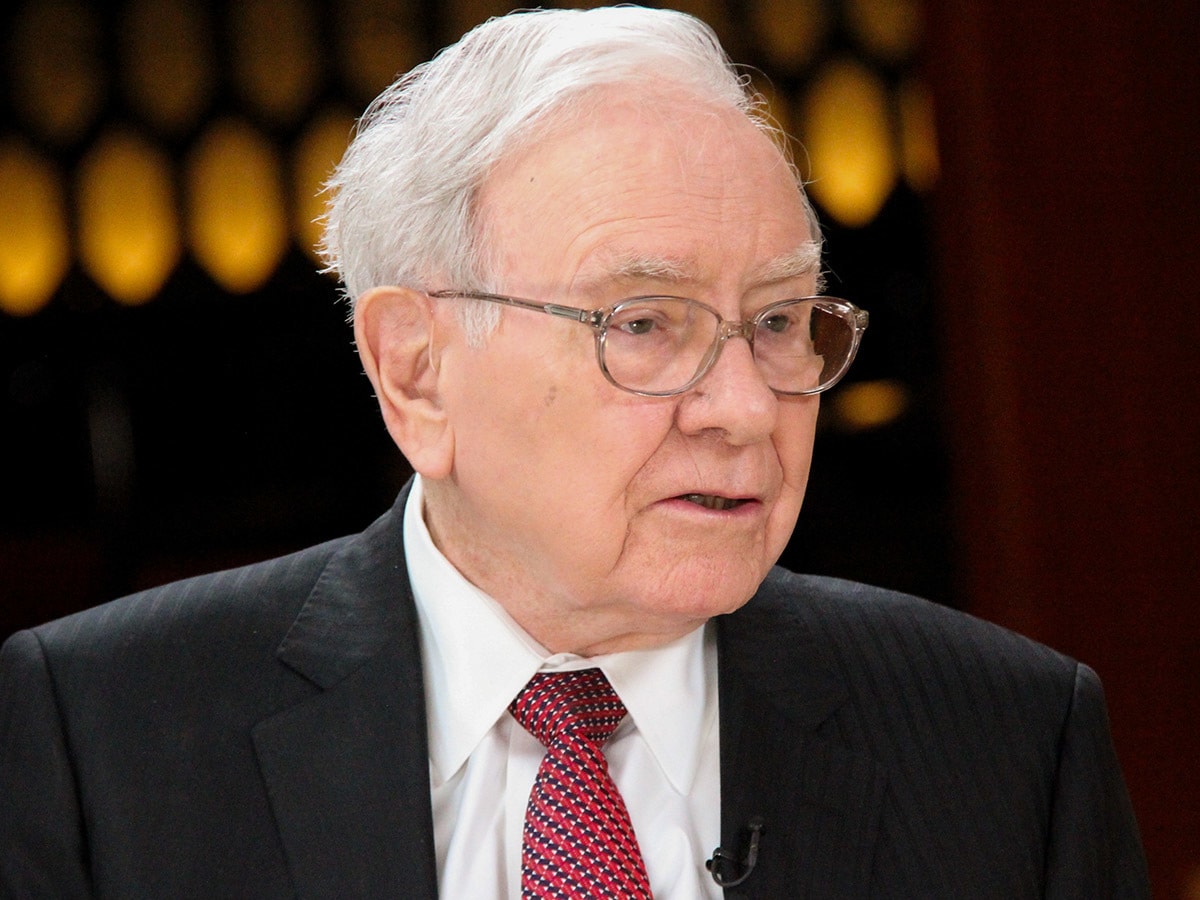The Oracle of Omaha has pulled his investments out of airline stocks and isn’t providing debt to struggling businesses. So where will Warren Buffett put his money?
Trust Warren Buffett to see this one coming. In his 2019 annual letter to Berkshire Hathaway shareholders, the iconic investment personality warned of “a major catastrophe that will dwarf hurricanes, Katrina and Michael … ‘The Big One’ may come from a traditional source, such as wind or earthquake, or it may be a total surprise … having disastrous consequences beyond anything insurers now contemplate.”
On numerous occasions, the 89-year-old Buffett has given stoic, calm-in-a-crisis reassurance to edgy investors. And they trust him — after all, you don’t build a net worth of $76bn without being right the overwhelming majority of the time. This is a man who just after the 2008 economic crash, counterintuitively invested billions of dollars in US companies and famously told New York Times readers: “Buy American. I Am”. It was a long-term gamble that eventually paid off — according to Yahoo Finance, anyone who had taken a stake in the S&P 500 when they published that 2008 op-ed would now be up 227%.
But despite Warren Buffett’s broad prediction of oncoming catastrophe, he wasn’t able to get out of harm’s way — in the first quarter of 2020, thanks to a combination of government lockdown and shelter-in-place orders, a lack of customer demand and market sell-offs, Berkshire Hathaway suffered a loss of $49.7bn, its biggest ever.
$49.7billion
Berkshire Hathaway's 2020 Q1 loss
Buffett pulls investments from airline stocks
Yet it’s a sign of investors’ faith in Buffett’s long-term refusal to panic that many are again looking to him for clues as to how to ride out the human tragedy and financial catastrophe that is COVID-19. All eyes were on BH’s annual meeting on 2 May — but Buffett didn’t give much away.
The whole tone was different this year, of course. Instead of gathering the usual 40,000 delegates to the annual event — dubbed “the Woodstock of capitalism” — social distancing rules cut this year’s guest list down to just two. Buffett and Greg Abel, the man touted as his heir apparent, sat comfortably apart while thousands tuned in virtually to listen and ask questions. Even the Oracle’s constant, even more, venerable business partner, 96-year-old Charlie Munger was absent.
It was clear before this meeting that Buffett had sold heavily, and on Saturday the Oracle confirmed Berkshire had offloaded its entire stakes — sized between 9% and 11% — in the “big four” US airlines, American Airlines [AAL], Delta [DAL], United [UAL] and Southwest [LUV].
“It turns out I was wrong,” he told investors. “The airline business — and I may be wrong and I hope I’m wrong — I think it has changed in a very major way. We will not fund a company … where we think it’s going to chew up money in the future.”
Buffett also said he had decided against providing debt to struggling US businesses, as he did during the 2008/09 financial crisis, saying he had not come across any attractive opportunities. “The Federal Reserve did the right thing and they did it very promptly and I salute them for it,” he told his remote audience. “A lot of companies that needed money got to finance in huge ways.”
He added: “We were starting to get calls [from companies seeking investment]. But a number of them were able to get money in the public market frankly at terms we wouldn’t have given to them. This is a very good time to borrow money, which means it may not be such a great time to lend money.”
“We were starting to get calls [from companies seeking investment]. But a number of them were able to get money in the public market frankly at terms we wouldn’t have given to them. This is a very good time to borrow money, which means it may not be such a great time to lend money” - Warren Buffett
So where is Buffett putting his cash?
As for where Buffett is putting the money no longer being spent on airline stocks or lending to businesses, those looking for clues were disappointed. This time — for the moment at least — there’s no repeat of the post-2008 crash splurge that saw Buffett invest in General Electric [GE], Goldman Sachs [GS], even the Bank of America [BAC], and therefore no reassuring lead for others to follow.
Many market-watchers had believed that Buffett had ploughed significant cash into buybacks, to keep his shareholders happy. “The big opportunity for Berkshire is Berkshire itself,” Bill Ackman, founder of Pershing Square Capital Management, recently declared, while Chris Bloomstran, head of Semper Augustus Investments, told his clients in a 50-page letter dissecting BH’s performance that “I would be surprised if they didn't repurchase at least $20 billion during the first quarter”.
In actual fact, Buffett had spent just $1.7bn of its $137bn cash pile on Berkshire shares — although he did also defend buybacks against what he called “politically correct” criticism. “When the conditions are right it should be obvious to repurchase shares,” he said, “and there shouldn’t be the slightest taint to it”.
“When the conditions are right it should be obvious to repurchase shares, and there shouldn’t be the slightest taint to it” - Warren Buffett
But Buffett may also be keeping his powder dry for a reason — for more than a year he has been on the look-out for “an elephant-sized acquisition”, admitting the prospect of one “is what causes my heart and Charlie’s to beat faster”.
He’s clearly still convinced an opportunity will come — “the factories don’t disappear, the farmland doesn’t disappear, the skills of the people don’t disappear,” he recently told the Wall Street Journal — but he won’t overpay. “We have not done anything because we don’t see anything that attractive to do,” he said at the shareholder’s meeting. “[But] we are willing to do something very big. I mean you could come to me on Monday morning with something that involved $30, or $40bn or $50bn. And if we really like what we are seeing, we would do it.”
Buffett has the money ready to go — what remains to be seen is whether the COVID crash will bring him the right opportunity.
Disclaimer Past performance is not a reliable indicator of future results.
CMC Markets is an execution-only service provider. The material (whether or not it states any opinions) is for general information purposes only, and does not take into account your personal circumstances or objectives. Nothing in this material is (or should be considered to be) financial, investment or other advice on which reliance should be placed. No opinion given in the material constitutes a recommendation by CMC Markets or the author that any particular investment, security, transaction or investment strategy is suitable for any specific person.
The material has not been prepared in accordance with legal requirements designed to promote the independence of investment research. Although we are not specifically prevented from dealing before providing this material, we do not seek to take advantage of the material prior to its dissemination.
CMC Markets does not endorse or offer opinion on the trading strategies used by the author. Their trading strategies do not guarantee any return and CMC Markets shall not be held responsible for any loss that you may incur, either directly or indirectly, arising from any investment based on any information contained herein.
*Tax treatment depends on individual circumstances and can change or may differ in a jurisdiction other than the UK.
Continue reading for FREE
- Includes free newsletter updates, unsubscribe anytime. Privacy policy





